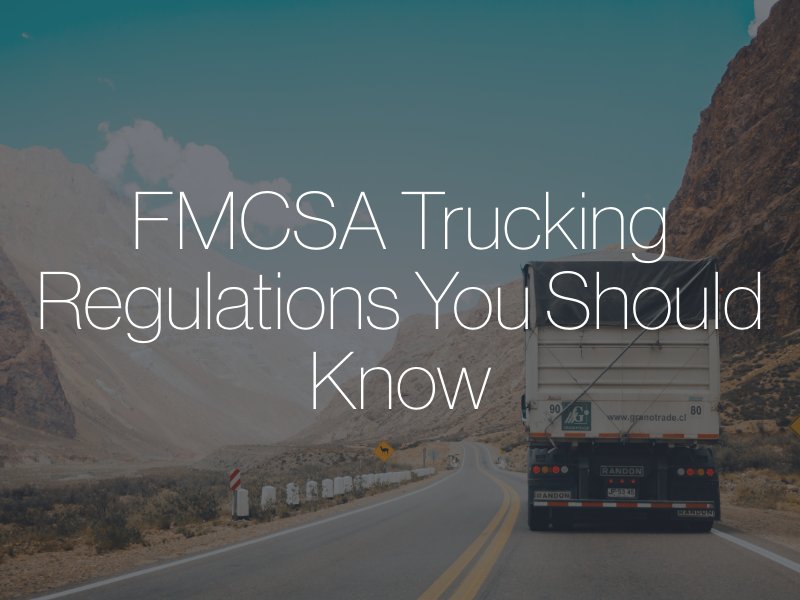The Federal Motor Carrier Safety Administration (FMCSA) is responsible for publishing and enforcing regulations for commercial trucks throughout the United States. Any truck that operates across state lines is subject to FMCSA regulation.
The FMCSA requires that all commercial truck drivers that cross state lines carry and maintain certain insurance minimums that depend on the type of freight and the weight of the vehicle.
- $300,000 if a vehicle is under 10,000 pounds carrying non-hazardous material
- $750,000 to $5,000,000 for vehicles weighing more than 10,000 pounds (differences depending on hazardous or non-hazardous material)

Every commercial truck driver in the country must have their commercial driver’s license issued by their respective state. All commercial truck drivers must be over the age of 21 years old. However, just because a driver is 21 or over and has a commercial driver’s license does not mean that they are ready to get behind the wheel of a vehicle.
Every trucking company is responsible for ensuring that each driver is ready to handle the roadways. This includes ensuring that the driver is trained on each particular vehicle they will be asked to drive and that they have been proctored by a more experienced driver before driving on their own.
Hours of Service
Drivers are only allowed to operate during a 14-hour time frame each day, but this time frame only permits 11 hours of total driving time. Truck drivers cannot start a new 14-hour driving window until they have been off duty for ten consecutive hours. Drivers are allowed to operate for 60 hours during a seven-day workweek or 70 hours during an eight-day workweek. Truck drivers can only reset a workweek by taking 34 or more consecutive hours off duty.
These hours of service requirements are in place to help combat driver fatigue. Operating a large commercial vehicle while fatigued is just as dangerous as operating while impaired by alcohol or distracted by a phone or another device.
New Training Requirements: Entry-Level Driver Training (ELDT)
As of February 7, 2022, new truck and commercial vehicle drivers must complete a minimum amount of training before taking the commercial driver’s license examination. FMCSA’s Entry Level Driver Training (ELDT) regulations set the baseline for training requirements for entry-level drivers. This applies to those seeking to:
- Obtain a Class A or Class B CDL for the first time;
- Upgrade an existing Class B CDL to a Class A CDL; or
- Obtain a school bus (S), passenger (P), or hazardous materials (H) endorsement for the first time.
Contact an Attorney
If you or somebody you love has been injured in an accident involving a large commercial truck in California, reach out to an attorney as soon as possible. A delivery truck accident lawyer will use the resources to handle every aspect of your claim in an effort to recover maximum compensation for your losses. A truck accident attorney in California will be responsible for handling all communication with other parties, and they will fully prepare your case for trial if necessary.


